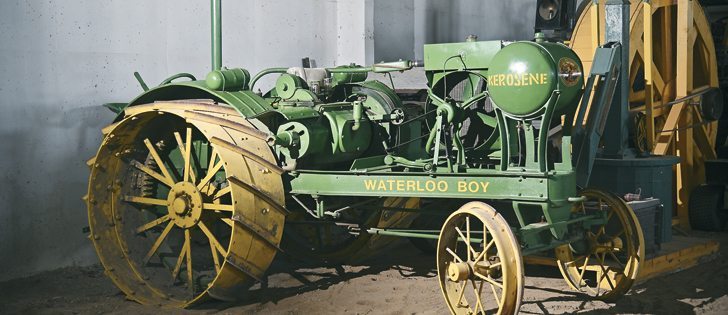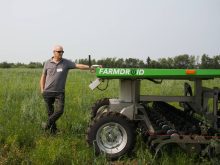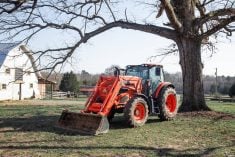Nell Ringguth, 81, of Carnduff, Sask., was a young girl during the Second World War growing up in The Netherlands.
Today, she keeps a collection of ornaments used on the family Christmas tree from that time.
They are extremely fragile so she doesn’t like to unpack them, but she’s evidently proud of the heritage she has managed to preserve.
“They are little birds that clip onto the tree. Their feathers spread out.”
Ringguth came to Canada in 1946 as a war bride. She remembers the Christmases from before that time vividly.
Read Also

Know what costs are involved in keeping crops in the bin
When you’re looking at full bins and rising calf prices, the human reflex is to hold on and hope for more. That’s not a plan. It’s a bet. Storage has a price tag.
“We had real candles burning on our tree. I remember my father once had to open the door and throw a Christmas tree outside because it had caught on fire and could have burned down the house.”
As a child, Ringguth believed that St. Nicholas rode a white horse and would gallop over the rooftops. He had a little helper dressed in black. They would come down the chimney and bring presents.
“We would have a Christmas parade and St. Nicholas would ride his white horse and throw candy and cookies to the children,” she said.
“We would put a wooden shoe by the stove, and fill it with hay for the horse. We would leave a glass of milk and a sandwich or a cookie for St. Nicholas.”
Christmas during the war was difficult on everybody.
“If we had anything for Christmas dinner, it would have been a rabbit. I remember we had got a small rabbit and my brother raised it. We were quite sad when it was killed for Christmas dinner. We wouldn’t eat it because he was our bunny. We were starving and we couldn’t eat it,” she said.
“I remember one Christmas my mother was very weak. My Dad couldn’t leave the house (the men were in hiding). I was the oldest. I was 13 years old. I had to provide.”
Ringguth rode her bicycle to a farm where they were killing chickens.
” I had been given a red bandanna by my parents for my birthday. My mother had to trade several items to get it. The farmer’s daughter wanted my red bandanna so I traded it for a chicken.”
When she returned home she watched her dad kill it and saw blood gushing out.
“I was starving, but I couldn’t eat any of the chicken,” she said.
One of Ringguth’s chores was finding firewood.
“I knew where they grew Christmas trees, so my brother and I would cut one and bring it home. We would tie it to my bike and if there was snow we would use a small sleigh.”
Ringguth said she didn’t realize how bad off they were until she looks back. But it helped coming from a loving family that would greet each other with hugs and kisses, she said.
“When I came to Canada everything was so different,” she said. Her husband Cecil’s parents did not greet people the same way.
“We didn’t have much on our first Christmas. We just gave each other little things,” she said.
“We had a farm and our children would toboggan down the dugout hill during the winter. We had Christmas with a turkey and all the trimmings. I would spend the day cooking and preparing the meal,” she said.
Ringguth has six children. Her husband passed away several years ago.
She said it is not the gift that is important. It is loving your children and caring for your grandchildren that counts.
She stays involved with her community, takes part in the local church choir and makes quilts.
Recently, her granddaughter presented her with a quilt with the photos of 60 of her family members printed on it.
“My granddaughter was so excited she couldn’t wait until Christmas to give it to me.”














